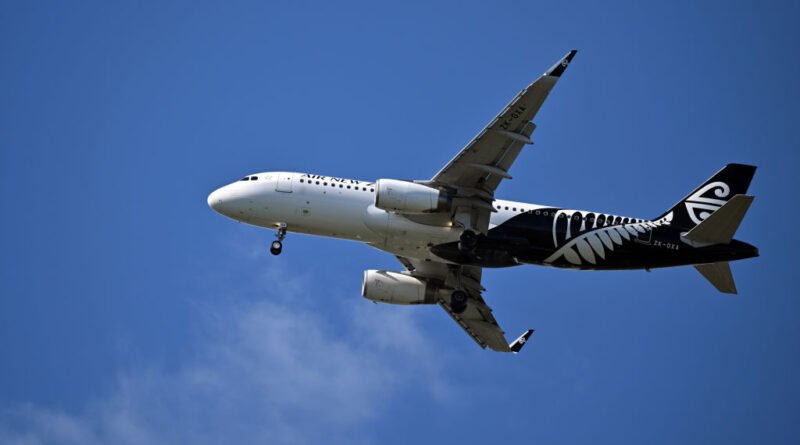National Carrier for New Zealand Abandons Emissions Reduction Goal for 2030
The airline notes that challenges with potential delays in its fleet renewal program and the availability of sustainable jet fuels were significant obstacles.
Air New Zealand has decided to remove its 2030 emissions reduction target and withdraw from the U.N.-backed Science Based Targets initiative (SBTi) aimed at corporate action on climate change.
The airline’s original goal to reduce its carbon intensity by 28.9 percent by 2030 (compared to 2019 levels) has been abandoned due to various factors, including difficulties in accessing new aircraft and alternative jet fuel.
Air New Zealand CEO Greg Foran mentioned that potential delays to their fleet renewal plan have become a risk to achieving the target in recent months, especially in the last few weeks.
“It is possible the airline may need to retain its existing fleet for longer than planned due to global manufacturing and supply chain issues that could potentially slow the introduction of newer, more fuel-efficient aircraft into the fleet,” he said.
“As such, given that so many levers needed to meet the target are outside our control, the decision has been made to retract the 2030 target and withdraw from the SBTi network immediately.”
The SBTi is a collaboration with the United Nations Global Compact and other groups that drives urgent corporate action on climate change.
Air New Zealand Will Work on New Target
Air New Zealand will now develop a new carbon emissions target that reflects these industry challenges.
The airline’s chair, Dame Therese Walsh, confirmed the company remained committed to at least reaching its 2050 net zero target.
“Our work to transition away from fossil fuels continues, as does our advocacy for the global and domestic regulatory and policy settings that will help facilitate Air New Zealand and the wider aviation system in New Zealand to do its part to mitigate climate change risks,” Ms. Walsh said.
The airline’s 28.9 percent target, validated by the SBTi, equated to a 16.3 percent reduction in absolute emissions over the period from 2019.
“Science-based targets validated by the SBTi show companies how much and how quickly they need to reduce their greenhouse gas (GHG) emissions to prevent the worst effects of climate change,” Air New Zealand said at the time.
“Setting a science-based target allows businesses to set a robust and credible carbon reduction target that is independently assessed to ensure it aligns with the latest climate science.”
The airline is listed on both the New Zealand Exchange (NZX) and the Australian Stock Exchange (ASX).
…
What Are Australian Airlines Doing?
Australia’s national carrier, Qantas, has committed to reducing carbon emissions by 25 percent of 2019 levels by 2030.



